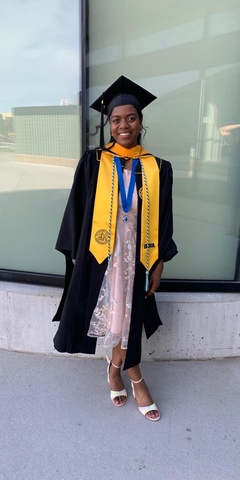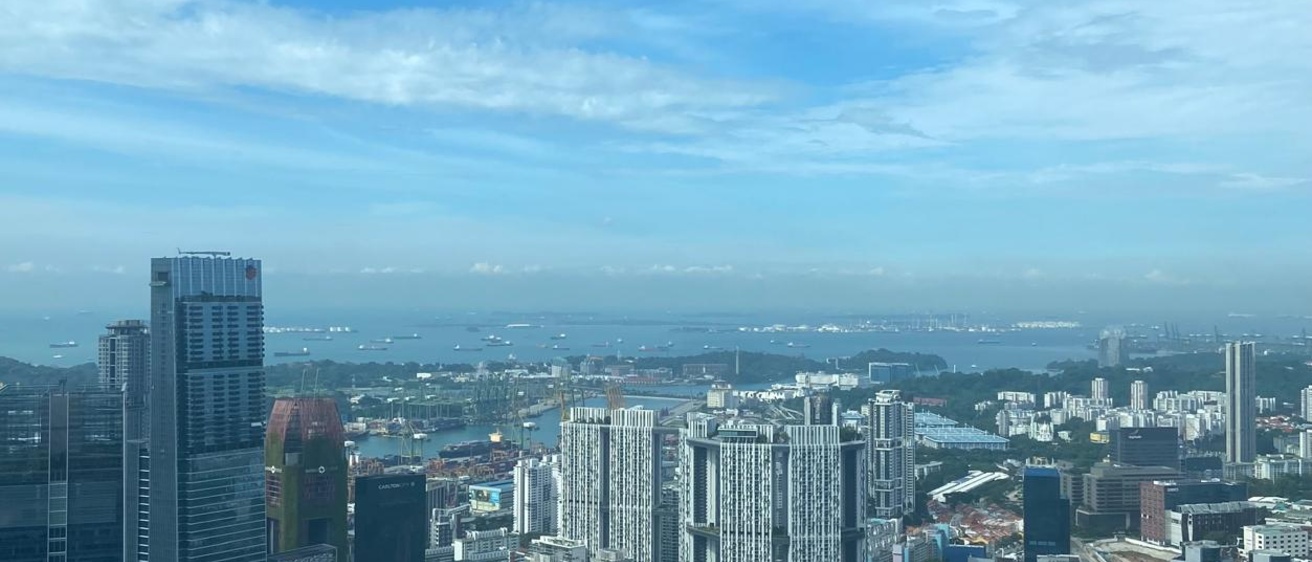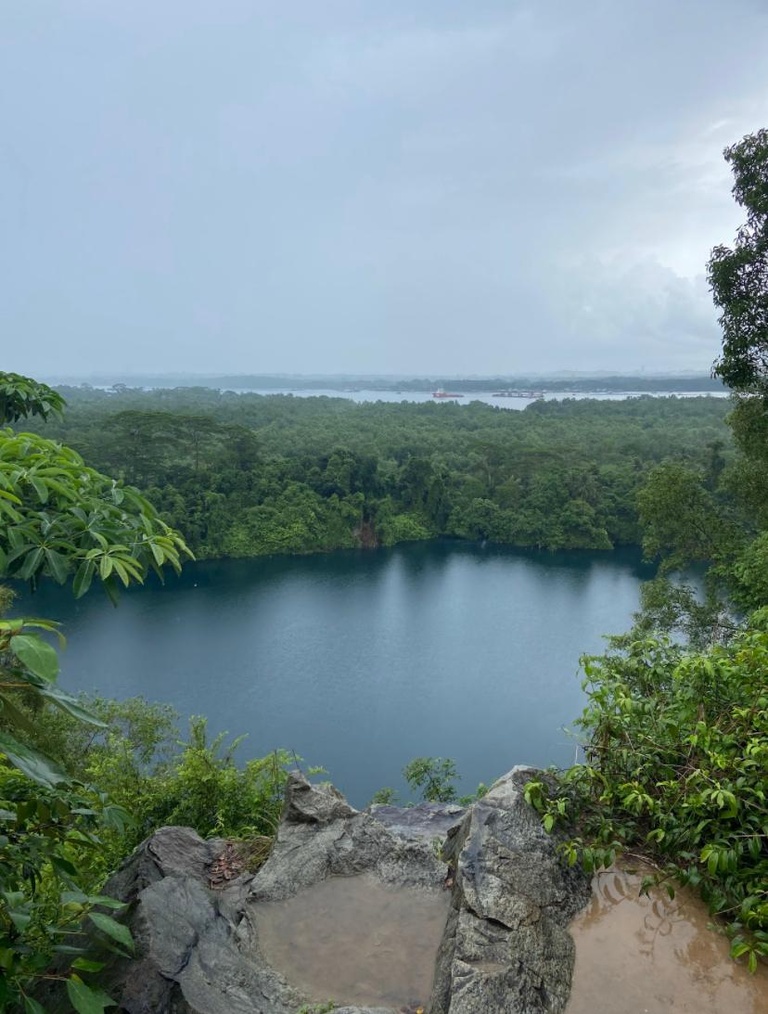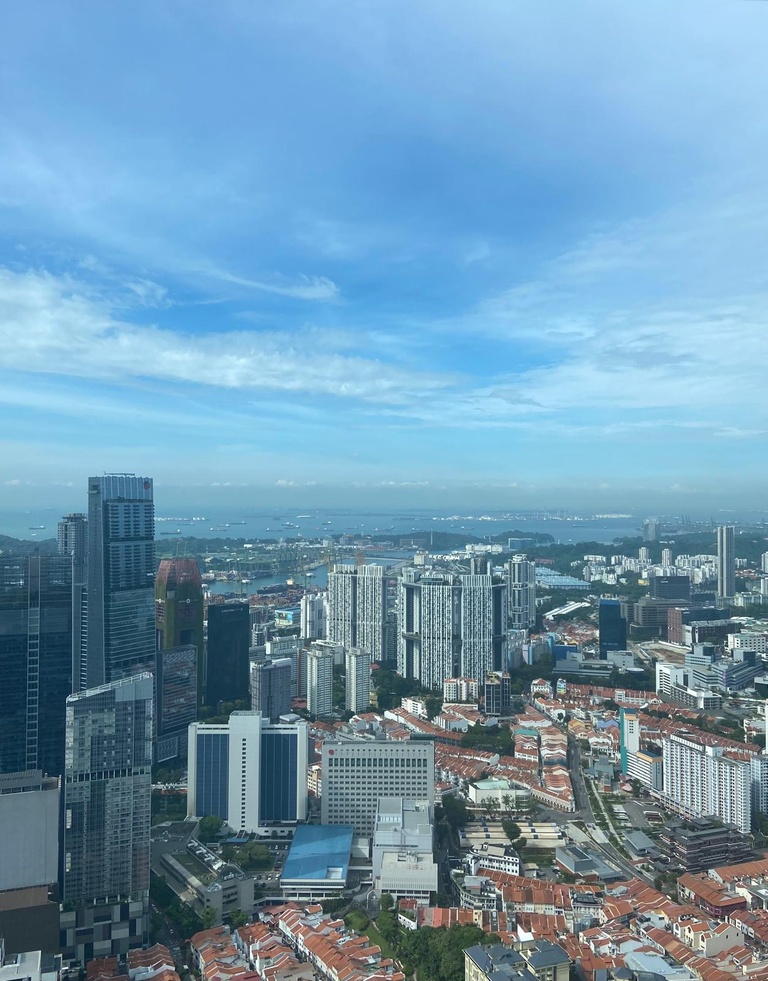
Angelina Evans is a Spring '25 graduate of the Geoinformatics U2G (Undergraduate to Graduate) program at the University of Iowa and a 2025 Fulbright recipient headed to Germany. Through the combined degree program, while pursuing a Master’s in Informatics, she earned a Bachelor’s in Geography with minors in Environmental Policy and Planning and Computer Science in Spring ’24. Her interdisciplinary academic path—rooted in environmental science and strengthened by technological expertise—has shaped her commitment to using data-driven approaches to address global challenges.
No stranger to international exchange, Angelina was one of 12 University of Iowa students awarded a Gilman Scholarship in 2022, which took her to Singapore to represent American perspectives abroad. That experience deepened her interest in cross-cultural collaboration and global research—making the Fulbright a natural next step. With this prestigious award, she will continue building on her commitment to both environmental issues and international understanding, bringing her technical skills and global mindset to the heart of Germany.
Congratulations on your Fulbright to Germany! What inspired you to pursue this opportunity, and why did Germany stand out to you?
Thank you! I had studied abroad in Singapore my junior year, and that opportunity inspired me to find other ways to go abroad again. I wanted to study or research environmental issues, and Germany seemed like a great fit for what I wanted to pursue. Also, my great grandmother was from Germany, so I thought it would be great to connect with my German heritage through Fulbright.
Your academic path spans Geography, Environmental Policy, and now Informatics through the U2G program—how have these areas shaped your interests, and how do they connect to your upcoming Fulbright experience?
When I was studying geography, I became really interested in research and how people could use spatial data to identify problems we face, then find ways to improve the situations. I chose to pursue an environmental policy and planning minor during my junior year because I wanted to better understand ways to actually implement changes in cities or regions. I really like that I was able to use things I learned from the informatics master’s program to support geography/environmental research, while also getting glimpses of informatics for studying health.
My research project combines all the components that I have studied at the University of Iowa.
I will be researching the physical and mental health impacts of flooding in Germany and using mapping to identify communities that may be at risk of being affected by extreme flood events in the future. I think it’s exciting to see everything come together for one project that is directly related to geography, health, computer science, environmental concerns, planning and policymaking.
You studied abroad in Singapore with a Gilman Scholarship—how did that experience influence your perspective, and what inspires your continued interest in global learning and engagement?
I spent time there learning about history, culture, science, and of course, food. I became even more amazed and fascinated by the fact that countries are so connected in different ways, but at the same time, each country or region has its own uniqueness. My motivation for global learning increased because I saw the ways in which it was impactful to my academic development, growth as a person, and understanding of and empathy for others. Even applying for the Gilman Scholarship influenced me because it helped me think about my future goals, what it means to represent Americans, and how I could benefit others in my own community in the future.
Studying abroad was an incredible experience! It provided me with a lot of time and opportunity to learn more about Singapore and my areas of interest.
During your time at Iowa, what campus or internship experiences have been most impactful, and how have they prepared you for this next step?
Looking back, I would say that the internships I have been able to have during my undergraduate summers helped me become very eager to pursue research and have helped prepare me for Fulbright. I interned for Oak Ridge National Laboratory for two summers and studied rural hospital closures in the U.S. This allowed me to learn about a national issue and use mapping and spatial analyses to identify groups who were more affected by the problem. I also interned at Iowa State University in the Data Science for the Public Good Program, where I helped come up with strategies on evaluating Iowa’s housing stock using AI. Also, on campus, I enjoyed being involved with some international programs and was able to connect with international students during events. This and the opportunity to help teach some geography and global topics to elementary-aged children in my community also fed curiosity that ultimately led me to apply for Fulbright.
Looking ahead, what do you hope to take away from your Fulbright experience—and how do you see it shaping your future plans?
I hope that Fulbright will not only allow me to learn more skills related to my areas of study and connect me with others in another country but also help people who may be negatively affected by future flood events. In my career, I want to be able to use all that I have learned to positively impact the future of cities, states or larger regions.
What advice would you give students who are pursuing studies abroad?
Stay engaged in the host country, take opportunities to learn and interact with others outside of your studies, and just enjoy the time you have. It’s an experience that you will never forget or will never be able to change!
In the news: 16 UI students, alumni receive Fulbright awards for 2025–26



